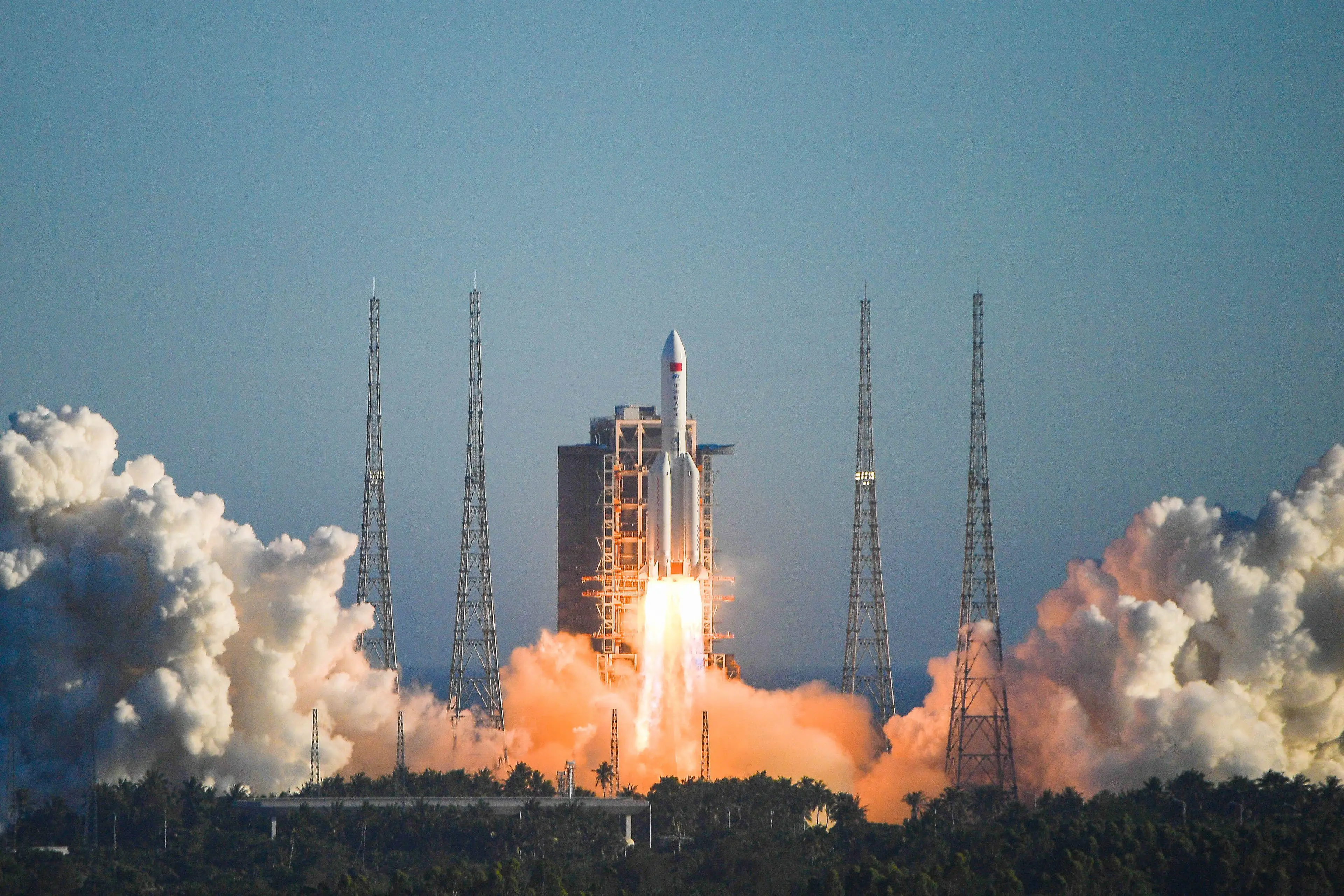
A 21-tonne rocket stage will perform an uncontrolled re-entry into the atmosphere within the next week and an astronomer has admitted he’s not sure where it will land.
On Sunday (24 July), China’s space agency launched a Long March 5B rocket, successfully delivering a new module to its space station.
However, the rocket’s core stage remained in orbit after the Long March 5B’s arrival at China’s Tiangong space station, and will soon crash back down to earth.

Advert
Speaking to Gizmodo, Jonathan McDowell from the Harvard-Smithsonian Centre for Astrophysics admitted: “Unfortunately we can’t predict when or where [the stage will land].”
He added: “Such a large rocket stage should not be left in orbit to make an uncontrolled re-entry; the risk to the public is not huge, but it is larger than I am comfortable with.”
McDowell also told the outlet that the rocket stage will likely hit earth in ‘the next week or so’.
While it’s unlikely that rocket debris will land on your house, there is a risk when it comes to uncontrolled re-entry into the atmosphere, and Gizmodo notes that recent research pointed to a rise in the chance of people getting killed or injured from falling rocket parts in the next decade.
The Long March 5B left Wenchang Space Launch Centre in Hainan at around 2.22pm on Sunday.
The spacecraft was carrying the Wentian laboratory, a cabin module that will provide the Tiangong space station with additional navigation capabilities.

The Wentian laboratory took 13 hours to reach the space station and docked onto the front of the Tianhe core module.
It’s not the first time recently that one of China’s rockets was left to perform an uncontrolled re-entry back into the atmosphere.
Back in May 2021, part of the rocket that launched the first module for the Tianhe space station made an uncontrolled re-entry to earth.
Speaking to The Guardian at the time, McDowell said: “It’s potentially not good.”
He added: “Last time they launched a Long March 5B rocket they ended up with big long rods of metal flying through the sky and damaging several buildings in the Ivory Coast.
“Most of it burned up, but there were these enormous pieces of metal that hit the ground. We are very lucky no one was hurt.”
The rocket debris eventually landed over the Indian ocean.
If you have a story you want to tell, send it to UNILAD via [email protected]